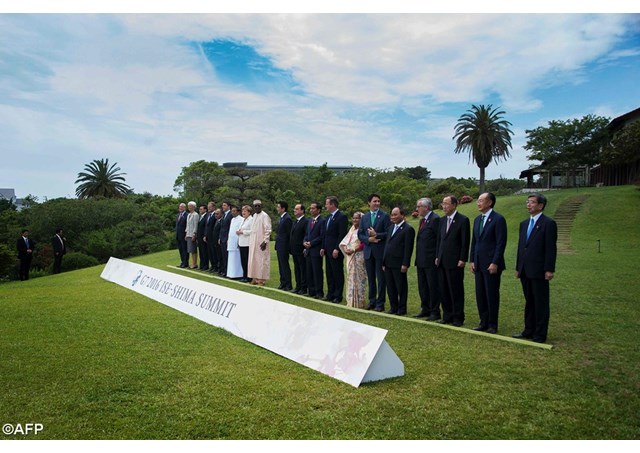
G7 summit hopes cooperation will avert economic crisis

Unsurprisingly, the Group of Seven rich economies of the world wrapped up its summit with a statement concerned with economic issues. Their priorities: the looming Brexit vote, economic growth, terrorism and refugee flows.
Listen to Alexander MacDonald's report:
The host of the summit, Japan’s Prime Minister Shinzo Abe, delivered the summit’s final statement and outlined three priorities: expanding the Pacific tariff free economic zone to the entire world, ensuring economic opportunity for women and the underprivileged and dealing in a united way to global health threats. This, Prime Minister Abe said, is the foundation of growth for the whole world.
On economic issues, Abe says we should not be pessimistic about the state of the world economy, although G7 economies are sluggish and the conditions are right for another global financial crisis. G7 countries therefore committed to beefing up policies to stimulate growth. “We remain committed to ensuring that growth is inclusive and job-rich,” the G7 statement said, “benefiting all segments of our societies.”
As a demonstration of this willingness, G7 members met with the leaders of seven developing countries, including Laos, Papua New Guinea and also some of its most dynamic emerging economies, like Vietnam and Indonesia. The president of Chad represented the African Union, and top international leaders such as Christine Lagarde of the IMF also attended.
World economies do not take well to political risk and so the possibility of Britain leaving the EU was also addressed. Four of the G7 countries are European – Britain, France, Germany and Italy – and the leader of Britain, David Cameron is in the midst of a tight campaign to convince reluctant voters in Britain to remain in the troubled EU. The G7 statement said Britain’s exit from the EU may be a shock for the global economy.
It may be debatable whether Britain’s exit will be bad for Britain but there’s certainly no doubt it will be bad for a teetering EU.
In an implicit criticism of China, President Abe underlined that movement of shipping traffic and maritime freedom must be guaranteed.
The summit declaration also highlighted joint efforts on corruption, cybercrimes,
terrorism, global health and migration which has become an overwhelming challenge
especially for European nations.
| All the contents on this site are copyrighted ©. |


